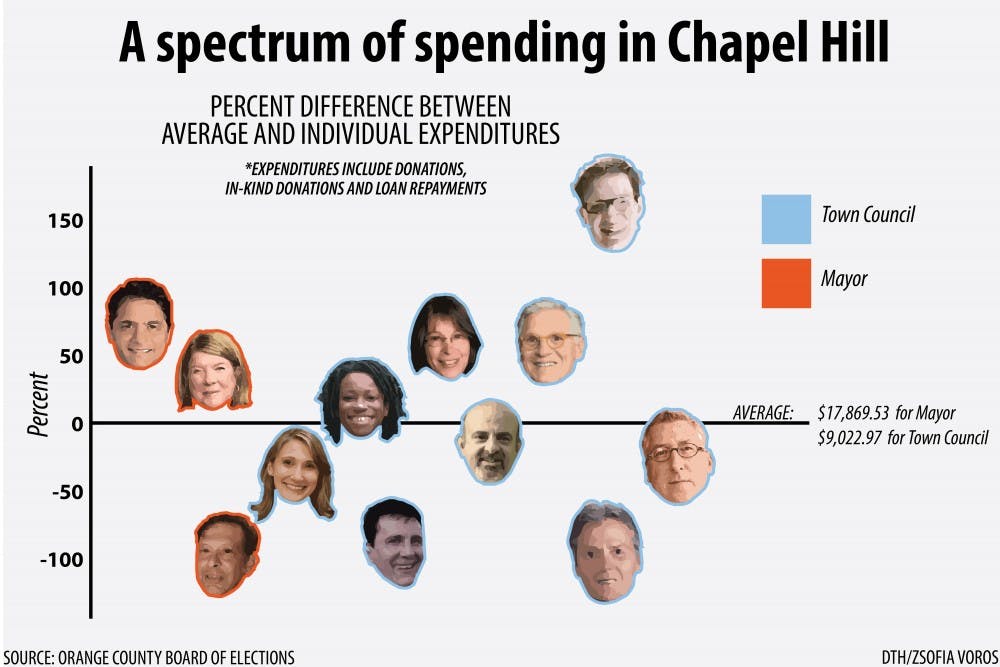Clarification: The graphic represents candidates’ total expenditures, as recorded on their final reports for the Orange County Board of Elections. Expenditures, per North Carolina law, include gifts, payments, donations, in-kind contributions and loan repayments. Candidates whose total expenditures include loan repayments are: Michael Parker, Paul Neebe, Nancy Oates and David Schwartz.The graphic has been updated to clarify this distinction.
In the 2015 Chapel Hill mayoral race, the two front runners, Pam Hemminger and Mark Kleinschmidt, spent a combined total of $53,603.58 on their campaigns.
The Chapel Hill Town Council race was competitive in 2015 with nine candidates vying for four seats, and candidate spending varied significantly. Incumbent Lee Storrow, who ran the most expensive campaign, spent $23,178.36 on his town council bid. Incumbent Jim Ward spent only $5 — the filing fee to run for town council.
Both Storrow and Ward lost the race.
Chapel Hill and Carrboro both have limits on the amount of money individual donors can give. Carrboro individual contributions are capped at $250 per donor, excluding candidates themselves and immediate family members. In Chapel Hill, the individual limit is $353 and does not apply to candidates or their spouses.
Carrboro Board of Aldermen member Bethany Chaney said it is not only important to keep election costs low, but also that individual campaign contributions are restricted — which are priorities met through the towns' limits on individual donations.
“I would rather every candidate raise $2500 from 50 people than $2500 from three people or five people or 10 — then 10 people are running your campaign instead of 50,” Chaney said. “I don’t make my decisions based off of who gave me money for my campaign, but the more money that’s involved in a campaign, you bet people are paying attention.”
'There's other money in play'
The landscape for Chapel Hill politics shifted with the 2015 formation of the Chapel Hill Alliance for a Livable Town. CHALT endorses candidates who share its goals of creating a more livable town with less traffic, affordable housing and lower taxes.




